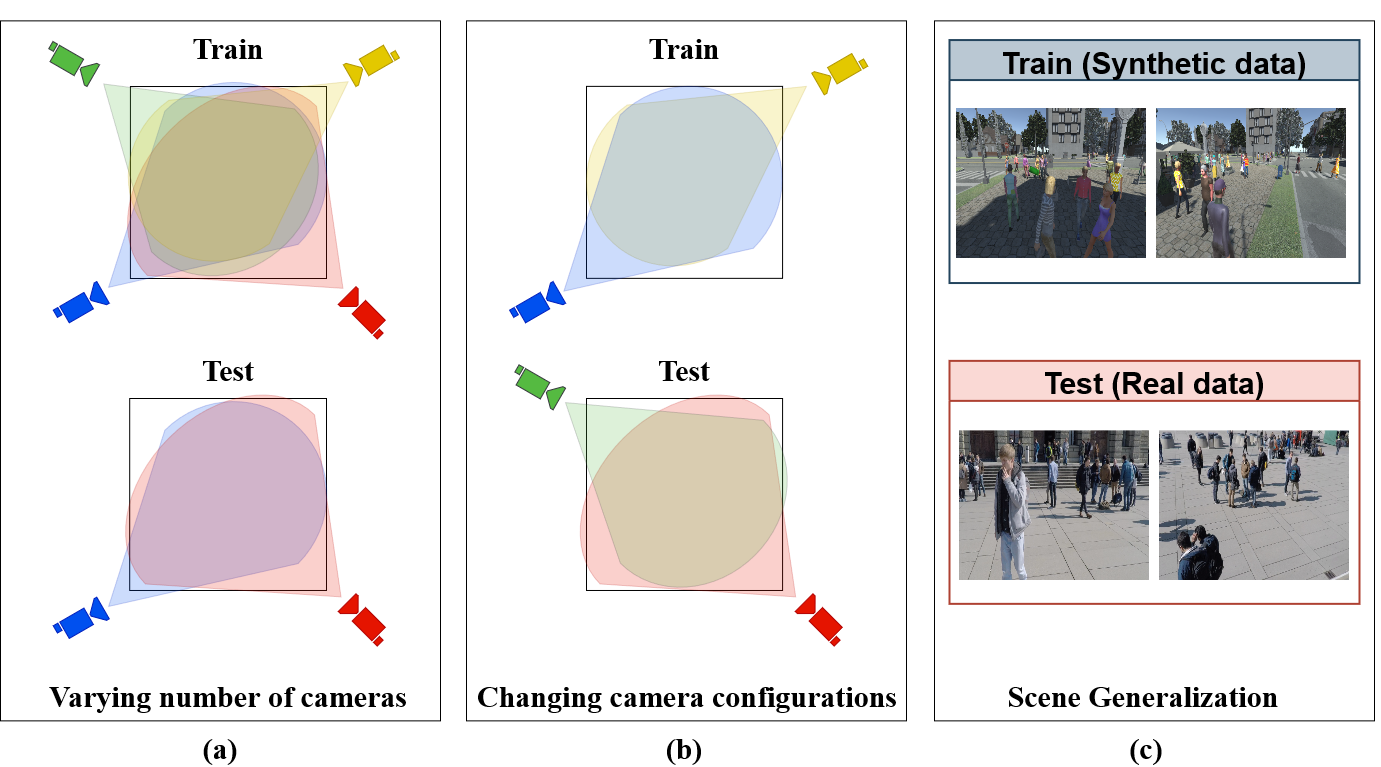Bringing Generalization to Deep Multi-View Pedestrian Detection
Multi-view Detection (MVD) is highly effective for occlusion reasoning in a crowded environment. While recent works using deep learning have made significant advances in the field, they have overlooked the generalization aspect, which makes them impractical for real-world deployment. The key novelty of our work is to formalize three critical forms of generalization and propose experiments to evaluate them: generalization with i) a varying number of cameras, ii) varying camera positions, and finally, iii) to new scenes. We find that existing state-of-the-art models show poor generalization by overfitting to a single scene and camera configuration. To address the concerns: (a) we propose a novel Generalized MVD (GMVD) dataset, assimilating diverse scenes with changing daytime, camera configurations, varying number of cameras, and (b) we discuss the properties essential to bring generalization to MVD and propose a barebones model to incorporate them. We perform a comprehensive set of experiments on the WildTrack, MultiViewX, and the GMVD datasets to motivate the necessity to evaluate the generalization abilities of MVD methods and to demonstrate the efficacy of the proposed approach. The code and the proposed dataset can be found at https://github.com/jeetv/GMVD
PDF Abstract



 GMVD
GMVD
 Wildtrack
Wildtrack
 MultiviewX
MultiviewX
